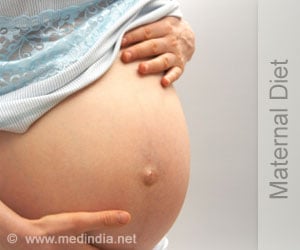Sue Tollefsen, 59, the oldest woman yet in the UK to be offered IVF treatment, has set off a raging nationwide debate over the need for an age cap for fertility treatments.
Sue Tollefsen, 59, the oldest woman yet in the UK to be offered IVF treatment, has set off a raging nationwide debate over the need for an age cap for fertility treatments.
According to current guidelines IVF may not be open to those above the age of 50 years.But a private London clinic is offering her the treatment nevertheless, raising a whole host of health and ethical issues. She has since been featured in a BBC documentary.
Should post-menopausal women be allowed to have fertility treatment? Should the government introduce legislation preventing it? Or should it be left up to Miss Tollefsen, who says she is full of life and healthy.
Only two years ago Ms.Tolefsen had given birth to a daughter after fertility treatment at a Russian clinic, presenting her partner, 11 years her junior, with a child he desperately craved. But she’s not stopping there, she wants to have one more when she hits 60, so that her two-year-old Freya has a companion.
"I agree there should be a cut-off point," she told the London Times. "Perhaps 65 is too old, but I'm still so healthy I don't see why I shouldn't be treated."
She approached the London Women's Clinic about trying for another baby on September 9 last year, and medical director Peter Bowen-Simpkins agreed to help her following a consultation.
Advertisement
Even if her case is refused, other women are to be given the opportunity after a general meeting of 50 staff last Thursday voted unanimously in favour of raising the age limit for treatment.
Bowen-Simpkins, who is spokesman for the Royal College of Obstetricians and Gynaecologists, said: "Everyone agreed that we should change the policy and now treat women over the age of 50 on a case-by-case basis.
"Sue will still have to go through more detailed assessment. She'll have to be seen by our counsellor and get a supporting letter from her GP. We'll also want to know that her partner is 100 percent supportive of her decision.
"But we'll consider her now for treatment if she wants to go ahead, yes."
Tony Rutherford, president of the British Fertility Society, said that he saw no need for an arbitrary cut-off point for IVF with donated eggs. "There are concerns about treating women in their fifties because of increased risks to both the mother and baby. Many doctors, myself included, would not treat at that age, but the society's view is that clinics can take a case-by-case approach. There aren't any right and wrong answers in this situation."
Allan Pacey, of the University of Sheffield, said: "I would argue against a need to legislate on this issue. Whatever age limit the Human Fertilisation and Embryology Authority or parliamentarians choose to make, there will always be cases from time to time where women are a few days older than whatever age is chosen and argue that the law has treated them unfairly. If a rigid law is made, then all it takes is a women to get on a budget airline to another country and get around the law that way. This has its own dangers and we seem to be willing to stick out heads in the sand about that."
But yet others are angry. Vanessa Felt, a commentator, lashed out, “There's no need for GCSE maths to work this one out. If Susan has her way she'll be 70 on her younger child's 10th birthday. No sane bookie would take bets on her sticking around to shepherd her offspring into adulthood. Susan's mind-boggling request for further fertility treatment seems to combine audacity and rapaciousness in equal measure.
The medical establishment is determined not be dictated to.
A great deal of suffering, soul searching, unnecessary expense and disappointment could be avoided if medics would simply bite the bullet, turn away the shilling and agree that 50 is the cut off point. Women over 50 who have not managed to produce children are entitled to our sympathy and understanding.
They are not entitled to a golden ticket to carry on trying to reproduce until decades beyond pensionable age.”
Source-Medindia
GPL











